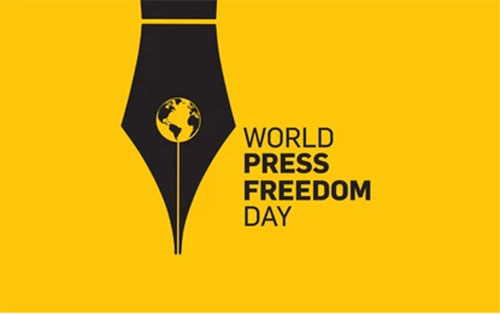When occasions such as the World Press Freedom Day are commemorated, they offer rare opportunities for important submissions to be made about the health of this critical appendage of democracy.
This year’s chapter has come at a time when we are in a better position to take a look at how social media has impacted the dissemination of unfiltered information and above all, the reaction of security agencies to unethical news dissemination, among others.
During times like now, when news dissemination is executed by all, professionals and amateur alike, there are bound to be infractions, some of them criminal in nature of course.
The foregone have in some instances triggered the reaction of law enforcement agencies in a manner which has prompted varied commentaries. Of course, the picture these paint about the state of press freedom cannot be bright for those chronicling such developments.
As the Deputy Minister of Information, Fatimatu Abubakari, said during this year’s function, there have been instances of security agents inviting media practitioners to assist in investigations. Such developments, often tendentiously presented, have not helped us to cover upward notches on the press freedom performance ladder.
There have been a few physical attacks on radio stations which negatives, as they stood, were not undertaken by assigns of government yet these have been erroneously presented as such.
It is necessary to state that press freedom ranking does not originate from a direct action of government on journalists. To suggest therefore as some have naively done, that government assigns have bullied journalists and prevented them from freely practising their profession, is to conceal the truth.
When a journalist takes a picture of fufu-eating cops in uniform and gets ruffled, it is bad, but government should not be blamed for the irresponsible conduct.
As we stated in a previous commentary, the abrogation of the Criminal Libel Law is the greatest impetus to the practice of journalism in this country, the source of which however, is the man who now presides over the affairs of this nation.
It would be important for our law enforcement agents to engage the media during periodic roundtables to discuss the issues of infractions which are not propitious to national security and by extension, her interest.
The precipitous drop in the press freedom ranking, as observed by the President of the Ghana Journalists Association (GJA), is reversible.
Every freedom must be savoured responsibly. While journalists should religiously abide by the ethics of the inky fraternity and be guided by the sensitiveness of national security as much as possible, the law enforcement agencies too should be mindful about how their actions can impact negatively on the country’s international impression.


